Jacob’s Ladder Movie Ending Explained & Themes Analyzed: According to the Bible (Book of Genesis, 28:10-19), “Jacob’s Ladder” refers to a meeting place between Earth and Heaven. Dreamt of by the patriarch Jacob, the ladder supposedly ascends into a cloud of angels, where Jacob proclaims upon waking: “How full of awe is this place! this is none other than the house of God, and this is the gate of Heaven.” Jacob’s Ladder isn’t the first-time screenwriter Bruce Joel Rubin has used biblical, spiritual, and paranormal themes in his films; he was also the mind behind Ghost (dir. Jerry Zucker, 1990) and Deadly Friend (dir. Wes Craven, 1986).
Rubin spent two years in a Tibetan Buddhist monastery in Nepal before penning the script to Jacob’s Ladder—the idea for which came to him during a nightmare. It took several years for the film to be pieced together and funded, as most studios found it “too metaphysical” for Hollywood. Eventually, Adrian Lyne was named director, with Tim Robbins starring as Jacob Singer—a Vietnam veteran plagued by fragmentary hallucinations from the spiritual realm. In 2019, David M. Rosenthal directed an independent remake, broadcast on DISH Network, but it was met with negative reviews.
Jacob’s Ladder Plot Synopsis & Summary:
Jacob’s Ladder opens to a smoky Mekong Delta in Vietnam in 1971. Before coming under attack, a platoon of American infantrymen sits around, sweating and joking. Just as Private Jacob Singer is stabbed with a bayonet by an unseen assailant, he awakens on a dingy New York City Subway carriage. The nightmare flashback shocks him, and when he moves into another carriage, he spots a demonic tentacle by the feet of another passenger in the corner of his eye.
Realizing he’s somehow locked inside an empty subway station, Jacob is almost hit by a train filled with white, faceless figures. He goes home to his girlfriend Jezebel (Elizabeth Peña) at their grotty Brooklyn apartment and flips through a pile of old photographs delivered by his son. The photos make Jacob smile and cry at once, filled with nostalgia over his old life with his ex-wife Sarah (Patricia Kalember) and three kids—one of which died as a child. Jacob slips the portrait of young Gabe (Macaulay Culkin) in his wallet and heads to his job as a postal clerk.
Strange visions and events continue to plague Jacob’s everyday life, including flashes of vibrating demons and almost getting run over by a pursuing car. When he visits his doctor, the receptionist says there’s no record of a Jacob Singer—before her hat falls off to reveal a bony horn protruding from her head. When he runs for his doctor’s old office, Jacob finds he died in a car explosion last month. Later, Jacob attends a house party where a psychic tells him the lifeline on his palm claims he’s already dead. When Jezzie asks Jacob to dance, images flash before him of a grotesque creature penetrating her on the dancefloor, causing him to scream and collapse.
Before returning to his life in Brooklyn, first-person flashbacks of the Vietnam war saturate the screen, where Jacob is being rescued by a helicopter crew. Mortified, Jezzie takes Jacob home, where he runs up a fever of 106°F and gets submerged into a bath of ice water, narrowly avoiding death by hyperpyrexia. Cutting to another reality, Jacob wakes up next to Sarah in their old family home, telling her to close the window before Gabe enters and asks to be tucked in.
Jacob mopes around the house during recovery, obsessively reading books on demonology and irritating Jezzie with his new, reclusive lifestyle. An old war buddy calls and asks to meet Jacob at a bar, where he confesses to experiencing similar demonic hallucinations. Despite carrying a Bible with him, the visions persist, pushing Paul (Pruitt Taylor Vince) to the brink of insanity. Leaving the bar, Paul is killed in a car explosion, just like Jacob’s doctor. At the funeral, the rest of the platoon survivors discuss their frightening apparitions, realizing it must be something to do with their time in the Army—a time that none of them can fully remember. They approach a lawyer, but he refuses to take their case because there’s no record of a Jacob Singer in Vietnam.
Jacob persists with the lawsuit but gets kidnapped by a passing car after his friends drop out and told to drop it. He wrestles himself out of the moving vehicle and onto the street, slipping a disk in his back, leaving him paralyzed. Jacob is taken into hospital, wheeled down multiple, increasingly dark floors, until reaching a gruesome underground asylum. Abused mental patients litter the rooms, where bloodied limbs are piled along the walls. Jacob’s head is bolted still, and a surgeon tells Jacob he is dead before Jezzie appears in scrubs. A man with no eyes plunges a syringe into Jacob’s forehead, and he awakens in a normal—if a depressing—hospital, visited by Sarah and his two kids.
Jacob’s chiropractor wheels him out of the hospital to his own office, cracking his back into place again. When Jacob cries to Louie (Danny Aiello) that he just experienced hell (literally), Louie responds with a quote from a 14th-century mystic:
“The only thing that burns in Hell is the part of you that won’t let go of life: your memories, your attachments. They burn them all away. But they’re not punishing you. They’re freeing your soul. So, if you’re frightened of dying and you’re holding on, you’ll see devils tearing your life away. But if you’ve made your peace, then the devils are really angels, freeing you from the earth.”
A mysterious man calls and asks to meet Jacob outside a coffee van back at home. It’s the same man Jacob had seen at the bar when Paul died, whose been following Jacob for some time. The man explains how he was forced to synthesize mind-altering drugs by the Army to avoid jail time, and, there made a powerful hallucinogenic called the “Ladder.” The drug taps into the user’s primal fear and ruthless anger, created so that soldiers may defeat the Viet Cong with unmatched force. However, when they tested it on a group of infantrymen—Jacob’s platoon—they turned on each other in a homicidal fever. This triggers a memory in Jacob—that the man who stabbed him was a fellow soldier.
Jacob returns to his family home, where Gabe is sat playing on the stairs. After hugging his father, Gabe guides Jacob up the staircase towards a blinding yellow light. This light merges into the lightbulb of a triage tent, 1971, where Jacob is declared dead from his wounds, his face appearing utterly at peace.
Jacob’s Ladder Movie Ending Explained:
Is Jacob dead or alive throughout the movie?
The ending of Jacob’s Ladder doesn’t over-explain the film’s overarching question: is Jacob dead or alive? Instead, it uses the familiar imagery of walking towards the light, passing loved ones, and ascending the stairs (or ladder) to Heaven (instead of down to Hell—like the floors of the hospital, or down to your primal responses when taking the Ladder drug). The final scene confirms that Jacob was pronounced dead on the field in 1971, so between then and going into the light with Gabe, we can assume Jacob was in a state of limbo between life and death. This is why he is able to see demons that nobody else can.
However, this is just one interpretation. Others suggest that most of the movie never happened at all; his memories of Vietnam aren’t flashbacks but the present moment. The rest of the movie—the future, where he lives with Jezebel—is just a hallucination brought on by the Ladder drug. A hallucination intended to guide Jacob toward Heaven or Hell, depending on if he takes Louie’s advice and lets go of his attachments and finds peace. This theory makes more sense, especially if you consider the deleted scenes where Jacob is given an antidote to the drug, but a voice tells him to “dream on” instead.
Is the “Ladder” drug or experiments based on true events?
Before the credit rolls up, a statistic appears to say, “it was reported that the hallucinogenic drug B.Z. was used in experiments on soldiers during the Vietnam war. The Pentagon denied the story.” Is this true? B.Z.—which is 100 times more potent than LSD—was used on African American citizens during the mid-50s, according to the “Psychiatric Oppression of African Americans” from the Citizens Commission on Human Rights. This confirms the existence, use—and abuse—of the B.Z. Drug by the U.S. government. But what about in Vietnam?
In a recently declassified manual for the “Treatment of Chemical Agent Casualties and Conventional Military Chemical Injuries,” B.Z. is listed in the glossary as an “incapacitating agent.” Though not used to arouse aggression in users like the drug in Jacob’s Ladder, B.Z. was used to incapacitate soldiers, with side effects including decreased mobility, hallucinations and delusions, confusion, slurred speech, and increased heart rate.
Checkout – The 10 Best Stephen King Film Adaptations
The government’s experimental use of drugs on unaware, incarcerated, and/or venerable human subjects is well known nowadays. It’s been confirmed that thousands of American citizens were secretly tested on between 1940 and 1974, most famously using large, continuous doses of LSD. The MKUltra program was originally intended as a counter advance on the Soviet and Chinese brainwashing techniques, which Dr. Gottlieb (American chemist and spymaster) defended with the statement: “where national survival might be concerned, such a procedure and such a risk was a reasonable one to take.” B.Z. was one of many hallucinogens the U.S. government tested on humans, usually under the pretense of national service during times of war.
Jacob’s Ladder Movie Themes and Motifs:
Demonology and the Bible
Jacob is portrayed as a smart man who decided to be a postman instead of utilizing his Ph.D. When he starts seeing these scary figures in passing car windows and trains, he immediately begins researching the history and practice of demonology. When Jacob meets up with Paul, the unstable Vietnam veteran shows Jacob the pocket Bible and crucifix he carries around with him for protection, but they don’t work.
Lyne litters the film with these kinds of religious images, which, in conjunction with the Biblical title reference (and character names such as Paul, Eli, and Jezebel), alludes to the idea that Jacob’s life has some connection to the spiritual plane—almost like a phone line, directly bridging Jacob with Hell itself.
Heaven, Hell and embracing death
For most of the film, Jacob assumes the creatures he seems to be demons—hallucinatory or not. It’s not until his chiropractor points out a change in perspective does he consider they could be angels if he were to let go and embrace death. In fact, the entire show is pushing Jacob to accept his death or live in a constant state of nightmarish limbo. He is still traumatized by his son’s death and time in Vietnam and frequently dreams and talks about his old life with Sarah. When resisting his visions by isolating himself and chasing lawsuits, he ends up in the physical manifestation of Hell. But when he surrenders to the truth of his passing, he can complete his Hero’s Journey and walk into the light with Gabe.
War crimes
The fact Lyne included a title card on the use of B.Z. drugs on Vietnam soldiers tell us there’s more to this movie than simple entertainment. Lyne and Rubin clearly wanted to send out a moral message, highlighting and critiquing the government’s unjust use of chemical warfare and human test subjects. Although it’s Jacob’s own platoon that breaks out into a bloodthirsty frenzy, the crime really lies in the Army’s hands, who use them as human guinea pigs without their consent and consequently wipe out an entire infantry.
Reality vs hallucinations
The big question viewers ask throughout Jacob’s Ladder is whether Jacob’s visions are real or imagined. As nobody else can see them, viewers initially guess Jacob suffers a mental breakdown or illness. Or perhaps they walk among humans invisible to all except Jacob (because he’s already dead?). When he sees Jezzie dancing with a giant lizard tail, nobody else notices; she is humiliated by his behavior, and it clearly didn’t happen in real life. However, when his ex-soldier buddies confess to the same experiences, we begin to question how much of the film is in Jacob’s mind and how much is really happening. It’s this kind of ambiguity that keeps us watching on.
Song
“Sonny Boy” by Al Jolson can be heard multiple times throughout Jacob’s Ladder. Jacob hums it to himself at work, sings it to Gabe when tucking him in (in a dream, memory, or hallucination? It’s not clear), and plays from tinny speakers in the triage tent, continuing over to the end credits. The lyrics connote Jacob’s relationship with Gabe—his “Sonny Boy”—whose death turned Jacob’s world into “grey skies.” The song talks about Heaven; how Sonny Boy was sent from the Heavens to make Earth a Heaven. These lyrics go hand-in-hand with the final scenes where Gabe leads Jacob up the ladder and into the sunlight, symbolic of his escape from purgatory into Heaven.
“I don’t mind grey skies.
You make them blue Sonny Boy.
Friends may foresake me.
Let them all foresake me.
I still have you Sonny Boy.
You’re sent from Heaven
And I know your worth.
You’ve made a heaven
For me here on earth.”
Jacob’s Ladder Movie Review:
Jacob’s Ladder may not be a terrifying horror by today’s standards, but it does achieve an eerie atmosphere. The fact you never see the faceless demons correctly or for very long adds to the film’s spooky ambiguity, playing on our fear of the unknown. The only real gruesome or frightening scene is in the hospital, where vibrating, mutilated creatures and severed limbs fill the mise-en-scene. Jeffrey L. Kimball’s grainy cinematography perfectly captures the grimy, rundown New York setting, pervaded by shadows for demonic ghosts to hide within.
Also, Read – 25 Years Of The Shawshank Redemption: A Film About ‘hanging In There’
Tim Robbins delivers a sober performance of a man fighting both his internal and external world as we try to fit the pieces of the puzzle together alongside him. Although the clever storyline gets a little too neatly tied up at the end of Jacob’s Ladder, it still leaves viewers mulling it over for the next few days. Lyne focuses more on the thriller aspects rather than the horror, producing a successfully surreal and existential movie that Rosenthal failed to recapture in 2019.
Stream Jacob’s Leader on Amazon UK & Apple TV


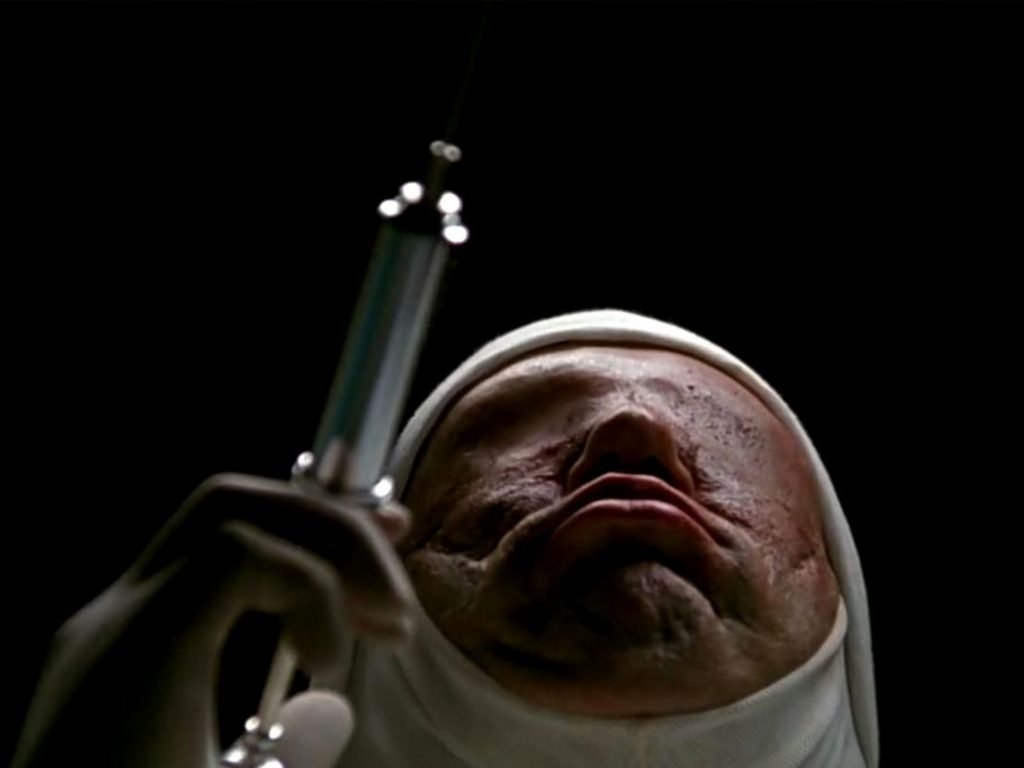



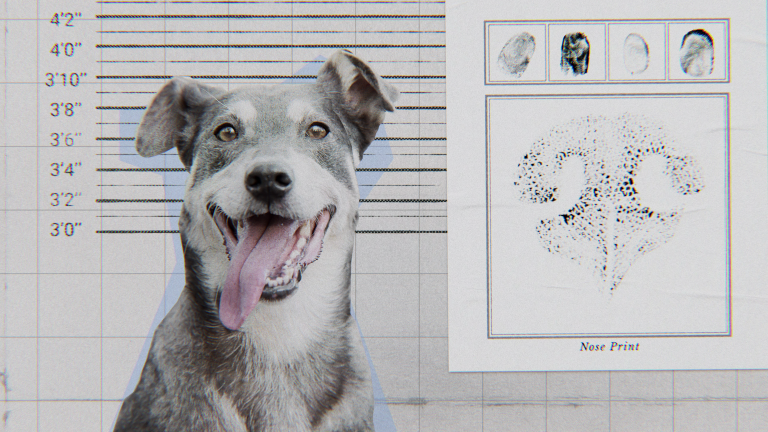
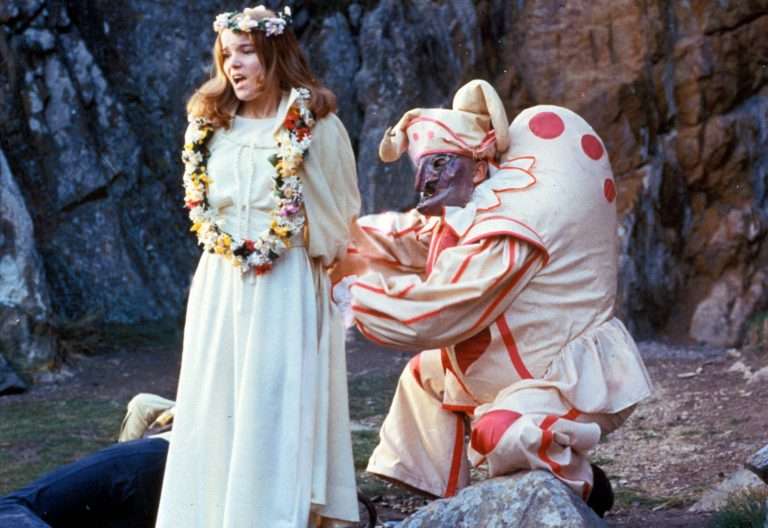
![Oxygen [2021] Netflix Review – Taut single-location thriller serves as an allegory for socially-distanced isolation](https://79468c92.delivery.rocketcdn.me/wp-content/uploads/2021/05/O2_20200728_Unit_01993_R2-768x513.jpg)
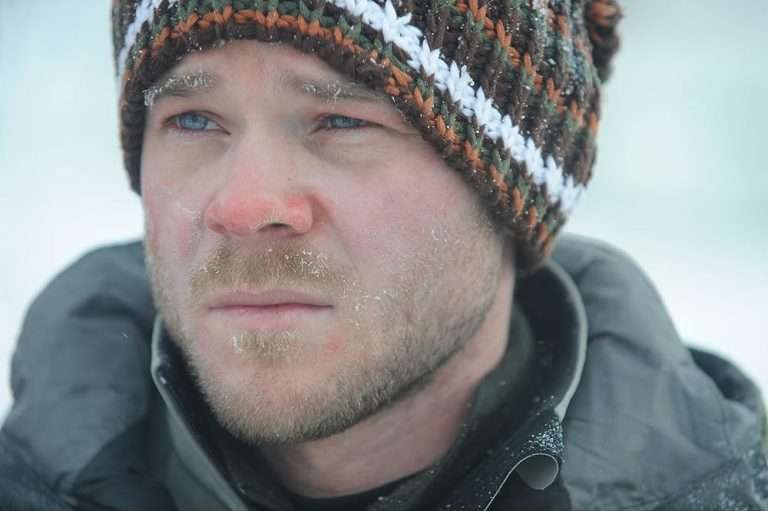
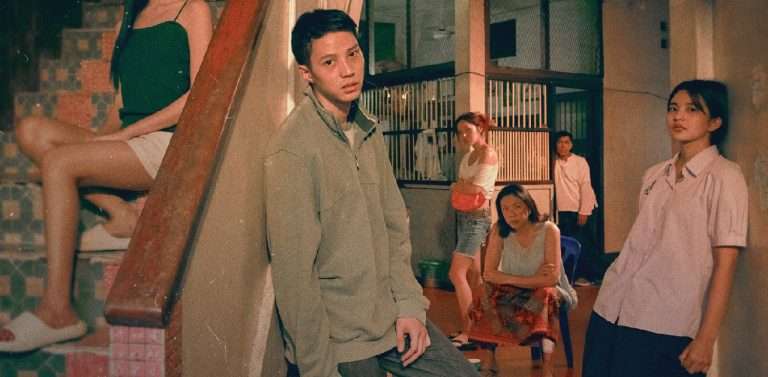
![Aviva [2020] Review – A gender-fluid enigma about the relationship we have with ourselves and others](https://79468c92.delivery.rocketcdn.me/wp-content/uploads/2020/07/Aviva-Movie-Holding-Dancing-HOF-768x427.jpg)